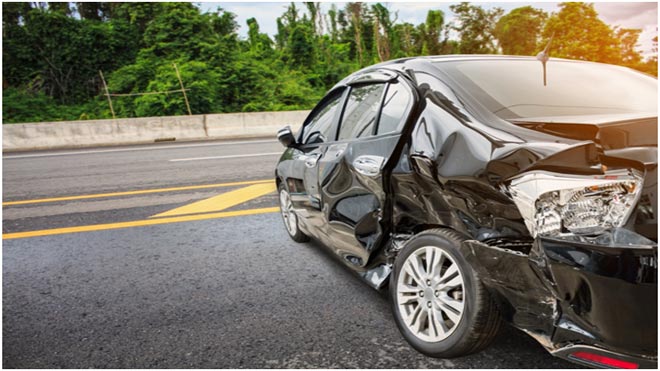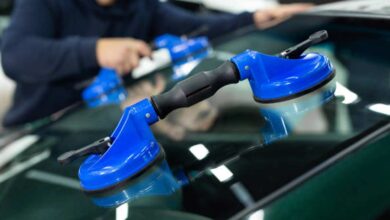About 240 million calls are made to 911, every year.
Since you’re reading this article, chances are you’ve been involved in an auto crash. Perhaps you didn’t know if you should call 911 following your car accident, or maybe you did and you’re still confused as to what the next step is.
To help protect your rights, we’ve created this short car crash guide. By fully understanding the right steps to take after a car accident, you can set yourself on a smart path. Whereas, doing the wrong thing can set you back financially, and physically.
1. Get to Safety
Immediately following a car accident, you’ll need to secure your safety. You can start by surveying the scene around you. Is your vehicle in the way of oncoming traffic?
If your car is drivable and you can safely do so, get out of the flow of traffic. It’s always a good idea to fully pull off the road, as far as you safely can. If your car isn’t drivable, but you can move, it’s okay to leave your vehicle. As long as you don’t have major injuries, getting out of traffic is always a smart move.
2. Call for Help
Never assume that you don’t need to call the police following an auto crash. It doesn’t matter how small the fender bender is, you should always get the authorities involved. Why? There are a few different reasons. For starters, you’ll be protecting yourself legally if a personal injury lawsuit opens up.
Whether the lawsuit is opened up against you, or you’re the one hiring a car accident lawyer, you’ll want an official police report. The police report is also going to help the insurance companies determine liability.
Next, it’s almost always a good idea to go immediately to the hospital following a crash. For instance, this blog gives great information on car accident recovery. One of the top tips is to be swift when it comes to seeking medical care.
3. Seek Medical Attention
You were in a car accident, but both vehicles were traveling at low speeds. You feel fine, and don’t see any apparent injuries. Should you still go to the hospital?
Absolutely! Injuries aren’t always visible to the naked eye. The shock of the accident can cause adrenaline to surge through your veins. It could be hours, or even days before you notice that something isn’t quite right in your body.
Perhaps your thumb got jammed on the steering wheel when the impact took place. Maybe you’re experiencing whiplash, but don’t know it yet! Without a full medical evaluation, you have no idea what the extent of your injuries is.
However, if you go directly to the hospital, and you do wind up having injuries, you’ll be in luck, legally speaking. The ambulance ride over to the hospital will help establish that the car crash contributed, or caused your injuries.
4. Gather Evidence
Before you leave the accident scene, it’s always a good idea to gather a little bit of evidence. For instance, you should make a quick voice recording where you go over the details of the crash. Say everything that comes to mind.
What were you doing right before the crash? What was the weather like? Did you see the other driver before the impact took place? How was the other driver behaving? The more details the better.
After making a voice recording, the next step is to take photos. Photograph the vehicles, any injuries, and the street location. Again, more is better. It’s better to have 100 photos, and only need 2, than to miss a crucial opportunity to prove liability. Another wonderful piece of evidence is witness testimony.
Take a deep breath, and calmly scan the accident scene for any potential witnesses. Was there a restaurant nearby where people are eating outside? Do you see anybody staring at the aftermath of the crash?
Calmly approach potential witnesses, and be polite so that you don’t scare them off. You will be shaken up from the crash, but you don’t want to overwhelm the witness with your intense energy. Instead, calmly ask if they saw what happened. Next, politely ask for their contact information so you can give it to your attorney.
5. What Not to Say After a Crash
Lastly, you’ll need to know what not to say after a crash. For instance, you should never say you’re sorry, even if you feel bad about the crash. Saying sorry can legally be an admission of guilt, causing you to be held 100% liable for the car accident. Whatever you do, don’t apologize to anyone, including the insurance companies.
Is there a personal injury lawsuit involved? If yes, it’s a good idea to avoid social media for a while. Whether you’re the defendant or the plaintiff, social media can be used against you. For instance, let’s say that you’re using the other driver for injuries caused by the crash.
A post about feeling better on your Facebook or Instagram could impact your claim. The insurance companies could argue that if you are feeling better, you must not be suffering. If you’re not suffering, why should you be allowed to sue for emotional distress or any distress? If you avoiding social media is out of the question, then avoid posting about how you’re feeling physically or emotionally.
See Also: Buying a Used Car in the UK is a Smart Choice for Everyone
6. Be Wise With Insurance Adjusters
Next, be careful when you’re talking to car insurance companies especially if you’re still young. You don’t have to feel as if insurance companies are out to get you. However, you also shouldn’t feel as if an insurance adjuster has your best interest at heart.
The truth is, the insurance company wants to pay out as little as possible for the accident. One of the ways they’ll try to minimize the payout is by asking you for a prognosis of your injuries.
However, you’re not a trained medical professional, and you have no way of determining the extent of your injuries. Don’t make guesses about when you think you’ll be feeling all better, or give details regarding your medical progress. Instead, ask your lawyer for specifics about what you can and can’t say to the insurance company.
Stay Safe Following an Auto Crash
When things that are out of our control happen in life, it helps to know how to get back on track. Hopefully, after eating this article, you have a better understanding of how to head in the right direction following an auto crash.
By securing your safety, both physically and legally, you’ll be off to a great start. If you haven’t already set up medical attention, we suggest you do so today. Next, look for the best lawyer, near you, and let them know the details of your case. For more tips like these, read another article!
Conclusion
In conclusion, knowing the steps to take after a car accident is crucial for your safety and well-being. By following the VVI 6-step guide, you can navigate through the aftermath of an accident with confidence and efficiency.
Remember to prioritize your safety and the safety of others involved, gather important information, and document the incident properly. While dealing with the aftermath of a car accident can be overwhelming, having a clear plan of action will help you handle the situation effectively.
So, stay informed, be prepared, and always prioritize your well-being. Keep this valuable guide in mind and ensure that your journey on the road is accompanied by the serene sounds of your car speakers, enhancing your driving experience every step of the way.









